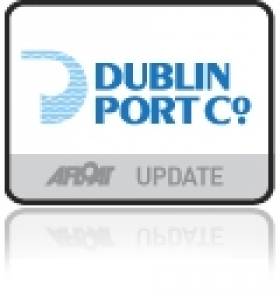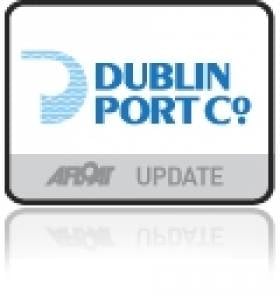Displaying items by tag: Dublin Port Centre
Dublin Port HQ is an 'Open House' in the Capital
#DublinPortCENTRE – Open House Dublin (4-6 October) is to feature the Port Centre, the headquarters of Dublin Port Company which is among 100 buildings celebrating opening its doors to the public next weekend.
The Port Centre designed by Architects Niall Scott, Scott Tallon Walker will be open on both Saturday 5 (10am-5pm) and Sunday 6 (12noon-5pm).
The building was actually commissioned for the predecessor of Dublin Port Company, the Dublin Port and Docks Board (DP&DB) which intended the building with a strong visual presence in the port.
The six-storey building dating from 1981 sits on a raised podium with the top floor dedicated to plant and ancillary accommodation, while four floors provide office space with spectacular views over the city.
At the time of construction the Board undertook extensive consultation on modern office configurations and the building was designed to embrace change and innovation. The structure is expressed externally in pre-cast concrete columns and beams.
Last tour of the Port Centre is 30 minutes prior to closing. Tours based on a first-come basis, so just turn up and look out for Open House Dublin volunteers.
Location: Alexandra Road East Wall, (approximately mid-way between the East-Link Bridge and Port Tunnel).
Public Transport: Dublin Bus Route(s): 53/151 to East Wall Road or take the LUAS (Red Line) to the Point from city centre location stops at Connolly Station and Busaras.
As previously reported last week, the headquarters of the Commissioners of Irish Lights (CIL) in Dun Laoghaire Harbour is also open to viewing next weekend.
Dublin Port 'Draft' Masterplan 2011-2040 Goes On View
Prior to the launch of the draft masterplan, Dublin Port Company undertook an eight-week consultation process up to May this year, which involved community briefings and meetings from a wide range of stakeholders including business representatives, associations, state agencies, customers and local community groups. Over 220 responses were received to form the 'draft' which is now ready for the current viewing.
Once supplementary submissions are reviewed, the 'final' Masterplan will be prepared and published in early 2012 and will form a framework for future developments at Dublin Port.
Eamonn O'Reilly, CEO of Dublin Port Company said: "It's clear from the 220 responses received during the first phase of the masterplan consultation process that people care deeply about the important role Dublin Port has to play in the future development of our economy and this city".
He added, "It's important, therefore, that all our stakeholders take this final opportunity to view and input on the masterplan. From Customers, exporters and local residents to public bodies, city planners and tourist organisations, everyone's contribution is necessary to help create a shared vision and lasting legacy for Dublin Port."
To view the masterplan, viewing hours are weekdays starting today and running to Friday, 2nd December 2011 from 9.00hrs-17.00hrs at Dublin Port Company, Port Centre, Alexandra Road, Dublin 1.
Interested parties are invited to make supplementary observations on the draft masterplan in writing no later than Friday, 9th December 2011 to: The Masterplan Consultation, Dublin Port Company, Port Centre, Alexandra Road, Dublin 1. For further information including a PDF downloadable version of the draft masterplan and SEA, click HERE.
Seminar on Port Security and Electronic Documentation
The Irish Branch of The Institute of Chartered Shipbrokers (ICS) is to host a seminar on International Ship Port Security (ISPS) and Electronic Solutions for Shipping Documentation in Dublin on Thursday, 14th October.
The seminar will be of benefit to everyone involved in shipping and transport. For further information about The Irish Branch of the Institute of Chartered Shipbrokers www.icsirishbranch.ie































































